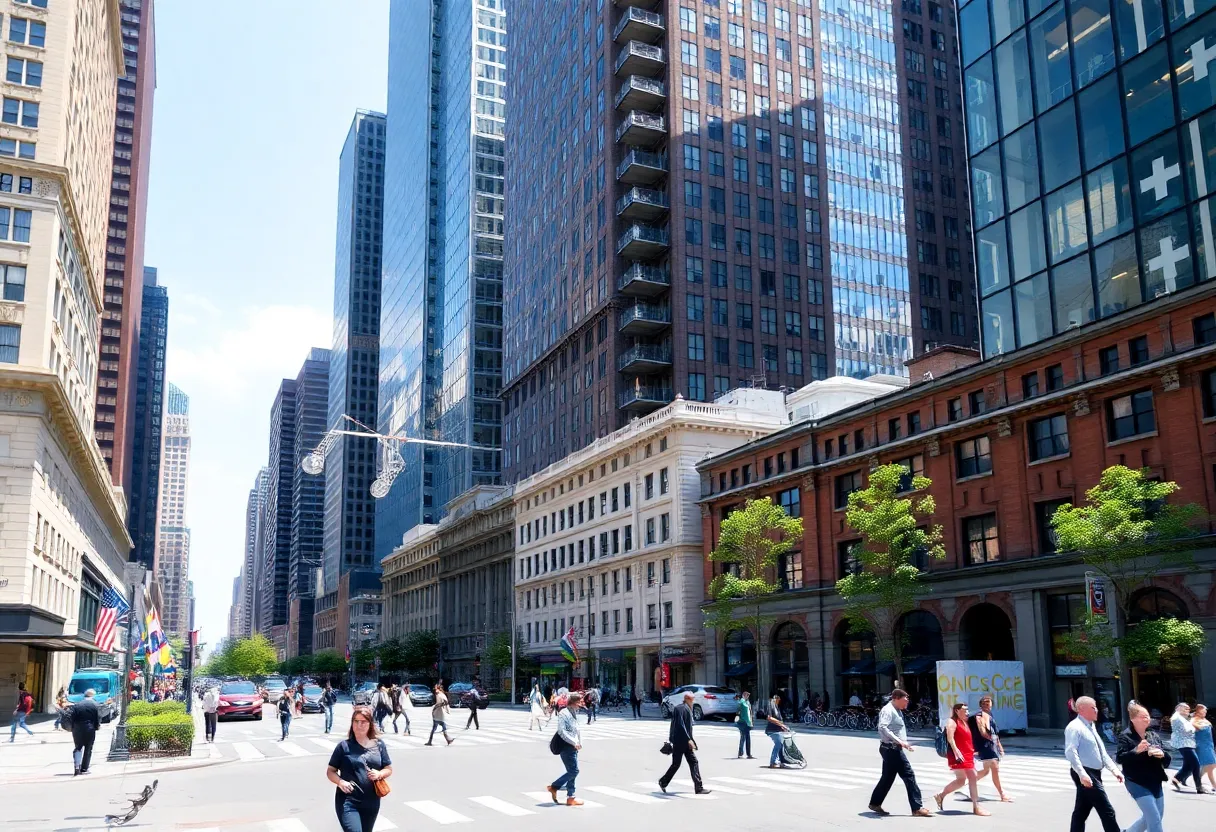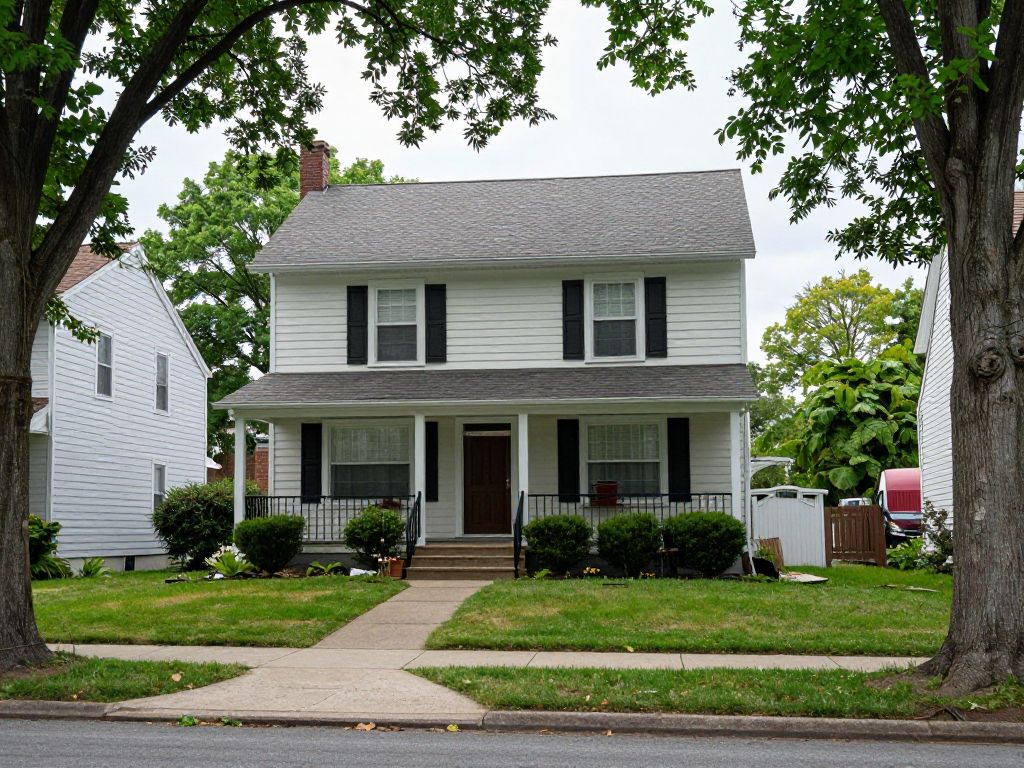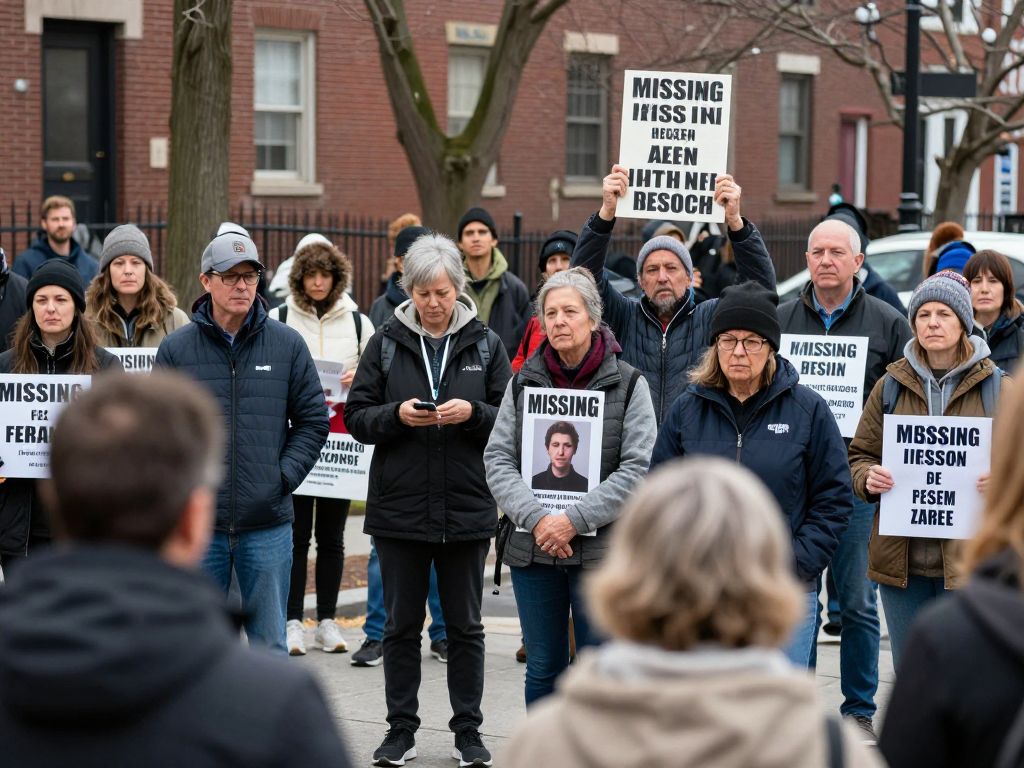Boston, September 17, 2025
News Summary
Mayor Michelle Wu is facing strong opposition over the proposal to allow 700-foot skyscrapers in downtown Boston. This zoning plan, dubbed Plan: Downtown, aims to revitalize the central business district by increasing housing supply. However, many community groups and some officials argue the changes could harm the city’s historic character and urban landscape. The Planning Department Board is set to vote on the proposal, which advocates believe could alleviate the housing crisis while opponents warn of potential negative impacts.
Boston
Mayor Michelle Wu is facing organized opposition after proposing to allow 700-foot skyscrapers in downtown Boston as part of a broader plan to revitalize the city’s central business district and increase housing supply. The zoning proposal, known as Plan: Downtown, is scheduled for a vote by the Planning Department Board of Directors this week, and community groups, neighborhood associations, and some elected officials have expressed strong concerns about the potential impacts on neighborhood character, development timelines, and the city’s historic fabric.
Key developments
The proposal to permit significantly taller buildings in downtown is a central element of Mayor Wu’s second-term agenda, an agenda that many see as carrying momentum from her recent re-election victory. The administration frames the zoning changes as a way to accelerate housing production, streamline review processes, and convert more downtown space into residential neighborhoods. The Planning Department has advanced several amendments to the Boston Zoning Code intended to modernize and simplify project review.
Opponents, including the Downtown Boston Neighborhood Association, have mobilized against the proposal and labeled the changes as a push toward “Manhattanization.” Community stakeholders say they feel unheard by City Hall and worry that taller towers will compromise Boston’s existing urban character. Some critics warn that the zoning shift could complicate development timelines and reduce housing productivity if projects encounter greater local resistance or additional procedural hurdles.
What the zoning changes would do
The proposed amendments include raising the threshold for projects requiring review by the Boston Civic Design Commission to 200,000 square feet, with the aim of reducing review burdens on smaller projects. The changes would also streamline the Article 80 development review process, replace printed project notices with digital updates and real-time notifications, and promote clearer expectations around sustainability, predictability, and community engagement. The administration describes these changes as essential to unlocking private investment and enabling more residential conversions in downtown areas.
Support and opposition
Supporters argue that increasing allowable heights in downtown and simplifying review will help address the city’s housing shortage by enabling larger residential projects and speeding up approvals. They contend that modernizing processes will provide greater predictability for developers while preserving opportunities for community input through updated outreach requirements.
Critics counter that taller towers risk altering Boston’s distinctive low- and mid-rise skyline and historic neighborhoods. At least one City Councilor has emphasized that Boston should retain its unique identity rather than adopt a New York-style skyscraper model. Community groups say the planning process has not adequately incorporated neighborhood concerns and that digital notice reforms may not substitute for meaningful, localized engagement.
Process and near-term timeline
The Planning Department Board of Directors is scheduled to vote on the Plan: Downtown zoning proposal this week. If approved, the proposals would move through municipal review steps that could include additional public hearings and final approvals by city agencies or legislative bodies, depending on standard zoning and consultation procedures. Separately, a second virtual candidate forum focused on housing strategies is scheduled, providing another public forum for discussion between stakeholders and political figures.
Potential effects and considerations
Analysts and local stakeholders identify several likely effects if the zoning changes proceed: an increase in development applications for larger projects downtown, potential acceleration of some housing conversions, and a reconfiguration of downtown neighborhoods toward greater residential density. Conversely, opponents foresee possible delays tied to intensified public opposition, legal challenges, or additional design requirements meant to preserve historic character. The net impact on housing affordability and production will depend on how developers, the Planning Department, and communities respond to the new rules in practice.
Background
Boston’s Article 80 process governs large-scale development review and has been regularly updated to balance growth, design quality, and public input. The current package of amendments is presented by the administration as part of a broader modernization effort to align the city’s land-use framework with current housing needs, sustainability goals, and technological tools for public notice and engagement. Tensions over growth, preservation, and housing affordability have been recurring themes in Boston politics and urban planning debates for years.
What to watch next
- Planning Department Board of Directors vote on Plan: Downtown (this week).
- Subsequent public hearings or review steps following the Board vote, if the proposal advances.
- Schedule and outcomes of the second virtual candidate forum on housing strategies.
- Responses from neighborhood associations and developers to any approved zoning changes, including project proposals and timelines.
FAQ
What is Plan: Downtown?
Plan: Downtown is a zoning proposal that would allow taller buildings in downtown Boston, modify thresholds for design review, update public notice procedures, and streamline the Article 80 development review process to encourage housing production and predictability.
How tall would the new buildings be under the proposal?
The proposal would permit buildings up to 700 feet in downtown locations identified under the plan, significantly higher than much of the existing skyline in those areas.
When is the Planning Department vote?
The Planning Department Board of Directors is scheduled to vote on the proposal this week. Additional review steps may follow depending on the outcome of that vote.
What are the main arguments for and against the plan?
Proponents argue the changes will increase housing supply, speed approvals, and bring more residents downtown. Opponents argue the changes could harm Boston’s historic character, complicate development timelines, and exclude meaningful community input.
How will community engagement change under the proposal?
The proposal would shift from printed notices to digital updates and real-time notifications, and would revise outreach expectations intended to increase predictability and sustainability; community groups express concern this may not replace in-person engagement.
Quick Reference Table
| Topic | Detail |
|---|---|
| City | Boston |
| Proposal Name | Plan: Downtown |
| Key Change | Allow up to 700-foot towers in downtown areas |
| Planned Vote | Planning Department Board of Directors (this week) |
| Design Review Threshold | Projects over 200,000 sq ft now subject to Civic Design Commission review |
| Notice Changes | Move from print notices to digital updates and real-time notifications |
| Main Support | Administration and housing advocates seeking increased production and predictability |
| Main Opposition | Neighborhood associations and some elected officials concerned about character and process |
| Next Public Forum | Second virtual candidate forum on housing strategies (date to be held as scheduled) |
Deeper Dive: News & Info About This Topic
HERE Resources
Boston’s Proposed Zoning Changes Could Allow Skyscrapers
Boston’s Historic Ebenezer Hancock House Returns to Market
Ebenezer Hancock House for Sale in Boston
Boston Faces Sharp Decline in Housing Construction
Boston Experiences Significant Temperature Drop
Boston Celebrates Best of Boston Winners
Boston Experiences End of Heat Wave with Significant Cool Down
Boston Residents Oppose Proposed Downtown Zoning Plan
Mayor Wu Proposes Zoning Changes to Revitalize Boston
New Hotel Development Planned for Boston’s Seaport District
Additional Resources
- NBC Boston: Zoning Proposal Divides Leaders
- Wikipedia: Zoning Law
- Hoodline: Zoning Code Overhaul
- Google Search: Boston Mayor Michelle Wu Zoning
- MassLive: Clash on Plans for Housing
- Google Scholar: Boston Housing Policy
- Beacon Hill Times: Zoning Commission Changes
- Encyclopedia Britannica: Zoning
- Bisnow: Design Commission Votes on Zoning
- Google News: Boston Zoning Modernization

Author: STAFF HERE BOSTON WRITER
The BOSTON STAFF WRITER represents the experienced team at HEREBoston.com, your go-to source for actionable local news and information in Boston, Suffolk County, and beyond. Specializing in "news you can use," we cover essential topics like product reviews for personal and business needs, local business directories, politics, real estate trends, neighborhood insights, and state news affecting the area—with deep expertise drawn from years of dedicated reporting and strong community input, including local press releases and business updates. We deliver top reporting on high-value events such as Boston Marathon, Head of the Charles Regatta, and Boston Harborfest. Our coverage extends to key organizations like the Greater Boston Chamber of Commerce and Associated Industries of Massachusetts, plus leading businesses in finance, biotech, and insurance that power the local economy such as Fidelity Investments, Biogen, and Liberty Mutual Insurance. As part of the broader HERE network, we provide comprehensive, credible insights into Massachusetts's dynamic landscape.





